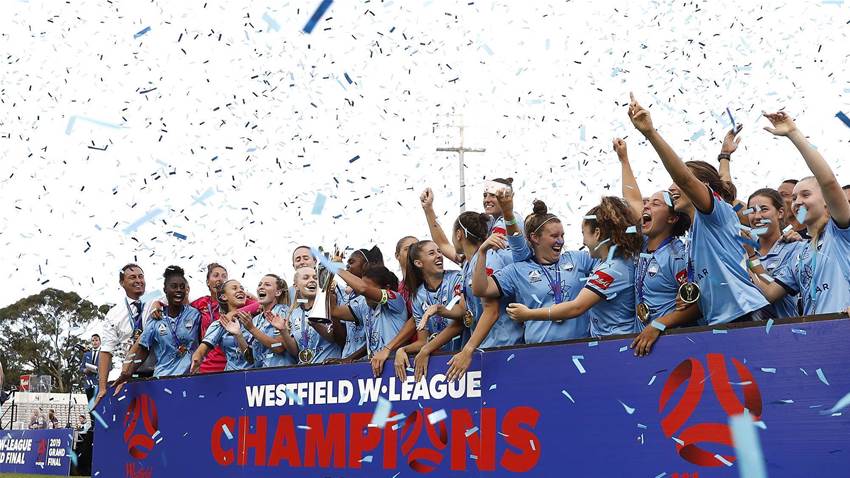International players will still be able to access visas to play in the W-League despite changes made by the Federal Government.
On Monday morning, a statement from Immigration Minister David Coleman announced the changes being made to the Medium and Long-term Strategic Skills List.
The changes would allow professional footballers to be sponsored to work in Australia for longer periods of time but came with the minimum salary of $120,000 being introduced.
“Australia has always been a competitive sporting nation, and these changes are a win for our local players, teams and fans,” said Coleman.
“Attracting top international talent to Australian football clubs brings those players’ skills and experiences from overseas and contributes to the knowledge and skills growth of Australian players. It means we can do even better on the international stage.”
This change would've greatly affected overseas W-League players who earnt a minimum of $12,287 last season with a salary cap of $300,000 in place. While it's rare for an entire salary cap to be spent, if it is divided equally between a 23-player squad, they would each receive $18,549.13.
But clubs might not share funds around equally or use the entire salary cap.
While the Collective Bargaining Agreement (CBA), which indicates the minimum salary earnings of a player, came to an end with the 2018/19 W-League, significant changes would need to be made in order to reach the $120,000 minimum on foreign players.
However, after further research and clarification, it was concluded a majority of the W-League's international players are here on Temporary Activity Visa (subclass 408) Sporting Activities.
This visa allows for athletes to participate in "high-level sports training with a sporting organisation" and allows them to stay up to two years. Following on from this, players must have a contract and a letter of support from a peak sporting body and not work outside their specified sporting activities to attain this visa.
In a statement on Monday afternoon in relation to the changes the FFA confirmed "foreign players will still be able to access other visa categories for entry into Australia as they have done so in previous seasons".
However, players could still be affected by the ruling depending on what visa they applied for but there are options to address this.
The changes introduced will likely have a positive impact on the A-League, however, it can't be ruled out that this wouldn't also be a positive if wages are increased for W-League internationals.
Instead of a Temporary Skill Shortage (TSS) Visa, which meant foreign players could only be granted a two-year visa, with the possibility to extend for a further two years, now an initial four-year visa can be granted, with an opportunity to apply for permanent residency after three years.
“Our clubs compete in a global marketplace for players and the attraction of a long-term lifestyle in Australia is one of the significant factors in recruiting elite foreign players," FFA CEO David Gallop said.
“This decision also re-opens the pathway for foreign players to obtain Australian permanent residency, and the potential for them to become Australian citizens and available for selection for our national teams.
“The mix of foreign players with local players is important for the overall development and success of the competition."
Related Articles

Champion A-League coach set to join Premier League giants

Emerging Socceroos star set to sign for MLS club













